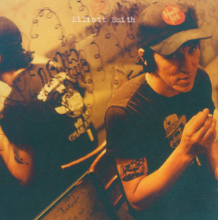On Friday, April 19th, at 12 a.m., Taylor Swift released her highly anticipated 11th studio album, The Tortured Poets Department. Just 2 hours later, she dropped a second album, The Tortured Poets Department: The Anthology. The double album shook the music world and overjoyed her fans. With a total of 31 songs, the album takes listeners through the five stages of grief: denial, anger, bargaining, depression, and acceptance. Swift’s lyrical mastery conveys the tumultuous emotions of going through a breakup and the struggles of moving on from a defining chapter of your life.
However, at its core, The Tortured Poets Department is not a breakup album. For two hours, Swift explores the hardships of growing up in the spotlight and having to mature from an early age in the entertainment world. With lyrics like, “growing up precocious, sometimes means not growing up at all” in her song “But Daddy I Love Him,” Swift acknowledges how she lost many profound childhood experiences due to her early career. Criticizing the “vipers dressed in empath’s clothing,” Swift calls out tabloids that tear apart her life in search of a headline. As many of her past relationships have drawn public criticism, Swift has learned to ignore the “judgemental creeps” who claim to understand every aspect of her life.
The Anthology explores similar themes, diving deeper into specific moments of Swift’s life, making it all the more moving. Swift takes us through a journey of inescapable sadness, the emptiness of loss, the hopelessness of searching for the one, and the relief and joy of finding them. The double album closes with The Manuscript, a testament to the record as a whole. Swift’s clear and poignant voice is backed by piano and hauntingly beautiful violin that crescendos as the song progresses. The lyrics are some of her most honest as she takes us through her entire life. Swift recognizes learning from her past as “the only way to move forward.” Unlike most of her songs, Swift does not write about her present life; instead, she steps away from her timeline and looks back at a finished story that “isn’t [hers] anymore.” The song indicates the end of an era, the end of the first book in Swift’s series, but certainly not the last.
The album displays Swift’s evolution and how every hard experience has shaped who she is today. The brutally honest lyrics demonstrate Swift’s genuine self-understanding which few people can achieve. With every song, she takes us deeper into her heart, telling us her deepest fears and welcoming us to find a comforting hand in her darkest moments. Swift explains how she writes every album for herself as a way to deal with whatever she’s going through. However, once the album is released, she turns it over and allows us to find meaning in it for ourselves in the hope that it’ll help us the same way it did for her.
Producers Jack Antanoff and Aaron Dessner provide contrasting production sounds to the album that still effortlessly blend together to create Swift’s staple authenticity. At first listen, many of the songs Jack Antanoff produced can sound similar, almost repetitive. However, as a reporter for CNN stated, “that is because it takes more than a day to get one’s arms around a 31-track album. Swift’s album demands time to be fully appreciated. It cannot be devoured at the speed of TikTok.” Initial negative reviews ironically reflect Swift’s message in her album, criticizing media outlets that jump to conclusions without knowing the full story. With every listen, The Tortured Poets Department gets better, and almost two weeks later, it continues to top the charts, holding a record top 14 spots in the Billboard Hot 100.
The Tortured Poets Department is so purely Taylor Swift. It is her at her best with heart-wrenching lyrics that make you feel understood, heard, and seen. To some people, Swift seems unreachable, but with this album, she becomes your best friend, the one who understands what you’re going through, listens, and holds your hand while you’re crying a river of tears.















